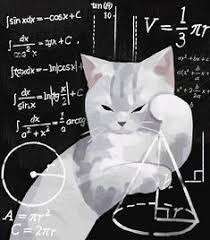Activity
Mon
Wed
Fri
Sun
Dec
Jan
Feb
Mar
Apr
May
Jun
Jul
Aug
Sep
Oct
Nov
What is this?
Less
More
Memberships
A-Z Science Fair Masterclass
Private • 56 • Free
8 contributions to Rishab Academy
IRO - Need Help!
Hey Rishab (or anyone with any leeway for the IRO), do you guys partner with non-profits/corporations? you know how ISEF partners with regeneron, microsoft, etc etc. asking if there's a plan on collabing so and if not suggesting as it would create better prizes (im not sure tho) or at the least create more circulation on the olympiad as more people will see it if big companies endorse the competition. also, is it possible to know or make the information public like: -> how many people applied? how many became finalists afterwards? how many were semifinalists? winners? etc. a graph chart would be awesome on the site. -> might be a dumb question but what is the prize for winning the IRO? is it possible to make this info available on the website? (i couldnt find it so maybe its my fault oof) and if possible, could the prize be cash (scholarship money) AND internship/tutoring or time spent with the board of advisors or someone for further research? like the winning students will get a chance to go to the bio lab in harvard or something. tysm!
3
5
New comment Aug 4
1 like • Jul 28
I'm unfortunately quite late to this post, @Shagi B. However, I will try to answer these questions in case someone else comes across it too. 1. 3850 people registered from the IRO, out of which a bit over 900 wrote the exam. We expect significantly more participants this year. 2. A graphical representation/pathway is a good idea. It was around 15% of students that wrote the exam that qualified for the semifinals, and 1.5% that reached the finals stage. 3. There is no cash prize for winning the IRO currently. Depending on the funding we receive, we can certainly look into this! 4. The IRO does provide connections to the student board and board of advisors if the finalist is keen. There is also a tour at Harvard. 5. Any IRO Clubs set up for IRO 2025 can receive some mentorship and guidance from our student board. This is yet to fully materialize (it will in about a month.)
The Ultimate Guide to Better Sleep (Part 3)
Let's go through some practical ways that you can start using to improve your sleep, hopefully as soon as tonight. If you're dealing with a sleep disorder, definitely talk to a doctor - this isn't medical advice, just personal learnings and tips from research. In my opinion, sleep optimization can be divided into five main categories. My goal is to give you a framework to optimize your sleep over the coming days, weeks, and even years. Category 1: Diet and Substances When it comes to food and drinks, avoid large meals and lots of fluids at least a few hours before sleep. This is mainly due to two reasons: indigestion and metabolism. Think of your digestive system and metabolism like factories. A few hours before bed, you want these factories to start winding down. If you eat a big meal right before bed, it's like asking these factories to keep working through the night. This keeps your body active when it should be slowing down. Also, digesting food is best done sitting up. Lying down after eating makes digestion harder, leading to discomfort and potential sleep disruptions. During sleep, you want your body to focus on relaxing and recovering, not actively working on tasks like digestion and metabolism. As for drinking, having a lot of fluids before bed can disrupt sleep because you'll need to use the bathroom during the night. I've noticed much better sleep since I stopped drinking anything 2-3 hours before bed. You might want to try this too! Now, let's talk about substances that can mess with your sleep: Caffeine: If you're a coffee drinker like me, be aware of how it affects your sleep. Caffeine has a half-life of about 4-6 hours, depending on your genetics. To improve sleep, avoid caffeine at least 8 hours before bedtime, maybe even longer to be extra careful. I try to only have caffeine before 11 AM, giving my body plenty of time to get rid of it before I sleep. Caffeine interferes with sleep by binding to adenosine receptors in your brain. While adenosine is trying to make you sleepy and relaxed, caffeine is blocking that signal.
15
28
New comment Jul 31
1 like • Jul 22
This is great, but I do take some issue with "since I stopped drinking anything 2-3 hours before bed. You might want to try this too!" 2-3 hours is a crazy amount of time IMO. I would rather say having 3-4 cups till T-1 hour before bed is fine, and then using the washroom before sleeping. YMMV, but I usually have a cup even 30 minutes before. Unfortunately, I'm going to have to be a bit of a hypocrite today. (I would estimate 5 hours of sleep tonight)
International competitions grand list
Hi guys! Please comment any note worthy competitions regarding stem and researching down below 👇. I want to make a comprehensive list of all competitions open to international students along with age groups and I'll add it into this post. Details: - Must be open to students in over 5 countries - Entry free or less than $100 (Those over $100 will be mentioned though) - Must be open to any ages from 12 - 18 - Must state other requirements for applying if there is. Update: if anyone interested, there's a pretty comprehensive post done by @Ahnaf Tahmid Uddin so go look at it and show I some support. Great work. https://www.skool.com/qurios/v2024?p=c4edf919
3
18
New comment Jul 12
ACT
Hi guys so I took the ACT in April I think and I did really bad and my second trial one is on July the 13th, in 20 DAYS!! I'm stressing and I want to improve at least by 10 or more and I don't know if its possible in this short time I have right now. Does anyone have any tips or strategies that could help with improving my score? Please let me know ASAP.
2
6
New comment Jun 26
2 likes • Jun 23
There are plenty of digital ACT tests available online if you know where to look. With respect to the math section, if you are scoring significantly low, it is likely that you have conceptual issues more than issues with the approach to the question. Thus, first you need to clear this up. Solve questions that are categorized by concept, and ensure you understand each type of problem e.g. questions involving complex numbers will involve knowledge of rationalization. For English, going through grammar rules, and also trying to sound out things may help. Science and reading involve getting used to the question. While I did not do so well on reading, what helped me in the science section (35) was that (since I am a relatively fast reader, and time wasn't an issue) I read the entire passage carefully to understand what they're doing in the experiment. Then, figure out what the question is asking—you already know what to look for. Especially for questions involving finding an answer based on the given data, you may not need to look at the options (that are designed to confuse you). Also remember that each question is objective; don't try and fall into the ACT trap of force fitting!
Is IB worth it?
Has anyone ever done IB or know about, because in my high school they offer both AP and IB. I don't know if I should do IB or not but currently I am planning to do both. So I want to know if doing IB worth it or if sticking to AP is good enough.
0
12
New comment Jun 23
1 like • Jun 23
I am currently a rising senior (i.e. going into my second year of the IB Diploma Programme soon). I've got to say, the IBDP is very rigorous. In certain schools, this is accentuated. Instead of AP Chemistry coursework which might involve a few labs and a lab report, here a detailed investigation is conducted that can make up 20% of your final grade. All six subjects in the IBDP involve a coursework component which can take up a lot of time. In addition to that, there is also EE/CAS/ToK aka the IB Core Requirements which can be very time intensive as well—the extended essay (4000 words) in particular, which is usually highly rigorous and sometimes novel! The IB prepares you to write very well, improve your analysis and data interpretation skills, and generally makes you more prepared for university. However, with the option of AP classes, the IB is not as necessary. By taking APs, you have extra time to pursue things outside of school that may benefit you more (and give you equivalent experience) without having to potentially deflate your grades too.
1-8 of 8
@dhruv-ramu-2265
HS Class of 2025 |
ISEF 2024 | IRO Student Board
Interested in molbio/compbio |
Active 23d ago
Joined Jun 16, 2024
Bengaluru, India
powered by






